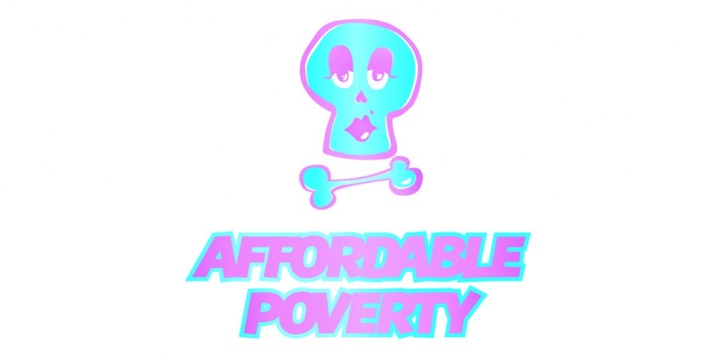
Score: 10/10
British singer Vanessa Brown has recently been teasing new music via Instagram. In anticipation, I’m revisiting 2013’s cruelly underrated Samson & Delilah.
In 2008, V V Brown found herself signed to Island Records and attempting to straddle the post-Lily Allen and Amy Winehouse waves simultaneously with an upbeat retro-soul sound. This ready-made popstar had everything it took to go all the way: a buoyant voice; the catwalk swagger of Grace Jones; and quality singles.
Songs like ‘Crying Blood’ and ‘Shark In the Water’ were promoted with a coveted Later… with Jools Holland slot and a tie-in with Canadian TV series Degrassi respectively, but nothing really stuck. Debut album Travelling Like the Light quickly faded out on the charts in 2010. A frustrated V V retooled its similarly 50s-inspired follow-up Lollipops & Politics beyond recognition.
Eventually released on V V’s own label three years later, Samson and Delilah remains one of the most drastic artistic resets in pop music history. Doo-wop quirk and crowd-pleasing melodies were jettisoned in favour of cold-blooded electronica, not unlike that of The Knife or late-90’s Madonna (the tracklist even shares two song titles with the seminal Ray of Light), and a concept loosely based on the eponymous biblical tale.
The 11 tracks here – pitched somewhere between ambient and aggressive – feel like the work of a completely different artist. That voice, once supple and engaging, is depressed into a bellowing contralto, a volte-face that unlocks a hidden intensity within the record’s themes of love, heartbreak and resilience. An inspired team of producers, including Pierre-Marie Maulini (M83) and The Invisible frontman Dave Okumu, do their best to obscure and distort it, but no amount of filters can eclipse V V’s hulking presence.
In her own words, Samson and Delilah is about the ‘tension between strength and weakness’, and this emotional spectrum is explored with gusto. Over menacing bass burbles, ‘Igneous’ casts her as a mountainous, primordial beast desperate to protect her lover: ‘Solid and powerful / No, never be scared.’ By contrast, wilting emo ballad ‘Knife’ chronicles the death spasms of a wounded relationship: ‘I don’t really feel like trusting / It’s not worth it anymore‘.
Seven years on from its release, however, I’d argue that this is an album about the tension between independence and loneliness. The soundscape is a byproduct of true creative freedom. Edgy and trend-resistant, it could never have been achieved under the watchful eye of a major label. You would think this would imbue the record with a sense of triumph and liberation, but it’s the opposite: the songwriting is unrelentingly bleak in a way that reflects the uncertainty of life as an independent artist.
‘I Can Give You More’ is an unlikely combination of head-spinning trance and Old Testament overtones. Set moments before the superhuman Samson brings down the Temple of Dagon, crushing himself and his enemies underneath, the song finds V V begging her lover to choose peace over violence. Except her vocal is so chopped’n’screwed, only the faintest of syllables emerge from her plea, leaving this Delilah proxy to watch on helplessly as her world is destroyed. Like that nightmare where you try to scream but you can’t.
Not everyone will see eye to eye with Samson and Delilah’s uncompromising vision. ‘Ghosts’ fudges a potentially great chorus with muddy mixing, and even ‘The Apple’ (a Grace Jones by way of Simian Mobile Disco showstopper) evades full anthemic status with a lonely-sounding chorus of oh-oh-oh-woah’s. But those that do will see right into V V Brown’s soul, and the wealth of potential that’s yet to be uncovered.
